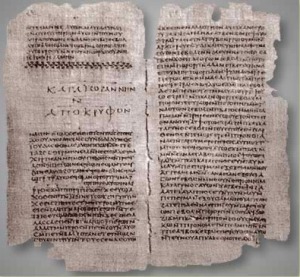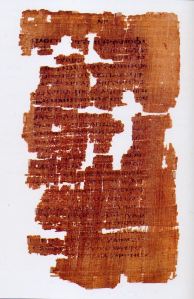I wrote the following short piece in 2011 after observing how some people handled their sacred texts. In this same time period I saw one used as a drink coaster and another laying on someone’s lawn. With this post, I wish to devote all my Friday posts, until further notice, to religious texts.
There is something very peculiar that strikes me about my Jewish friends, no matter where we go, if there is change on the ground, they will pick it up, even single pennies. There is a common, but untrue stereotype about the Jewish people being obsessed with money. To the uniformed spectator this may seem to be that stereotype in action , however the reason behind this is both simple and profound. They do it out of respect for G-d. On every coin and bill of U.S currency is the phrase, “In G-d We Trust”, and for the word G-d to touch the ground is a sign of disrespect for the Almighty, the creator.
This respect is lacking among a lot of individuals in the western world. Before I proceed I would like to note two things, A. This is not meant to condemn the atheist or the unbeliever, but instead to rectify a mistake committed by some of the Children of Abraham (Jews, Christians, and Muslims), B. I believe this mistake is in fact an innocent mistake, and that those that commit it are not aware that they are disrespecting G-d.
There are many fine examples of pious believers respecting G-d directly. We respect him by offering him prayers, obeying him, and loving our fellow man. Some specific examples of this include Jews saying HaShem in conversation and Addonai in devotional settings instead of saying G-d or his name, and Eloqim instead of E*ohim, and Muslims saying “Glorified and exalted be He, may He be glorified and exalted.” (often abbreviated as “SWT”) after saying the name Allah. Most pious believers have no problem in this area.

A Jew reading a Torah scroll with a pointer. A Jew, out of respect would not touch the scroll directly.
The problem comes from respecting G-d by respecting his books. Before we look into this matter, let us observe some ways in which believers show G-d proper respect by respecting his books. A pious Jew out of respect for a Torah scroll, would never touch the scroll directly. To show respect for the Torah, a Torah scroll is carried around the Synagogue and believers kiss books and touch the scroll with it. Out of respect, it must never touch the ground, and if it does the entire congregation must fast for forty days. Also a pious Hebrew would never set anything on top of a copy of the TaNaK (The Hebrew Bible) nor would they set anything on top of it. Likewise pious Christians would never set anything on top of a Bible or set it on the ground. The same is true of righteous Muslims, whom would never do these things to a Bible or a Quran, and additionally would not touch either book without performing ablutions (ritual washing, to be in a pure state).
The problem is this: Believers unintentionally disrespect their books. They set them on the ground and place things on top of them. Often I see people place cans of Coke or cups of coffee on top of a Bible, or they leave it exposed to the elements.
It is a miracle we have these books, they truly are a gift from G-d, and one should respect them as such. I also would extend this to the Talmud, the writings of the Early Church Fathers, the Hadith, and the parrabiblical books (The Psuedipigrapha and Apocrypha). It is truly a miracle we have some of these texts (The Gospel of Thomas, for example survives complete in only one copy, where as many others such as the Gospel of Mary or Judas survive only in fragmentary forms, many did not survive at all.) So let us treasure our gifts from G-d and respect Him by respecting his books.




